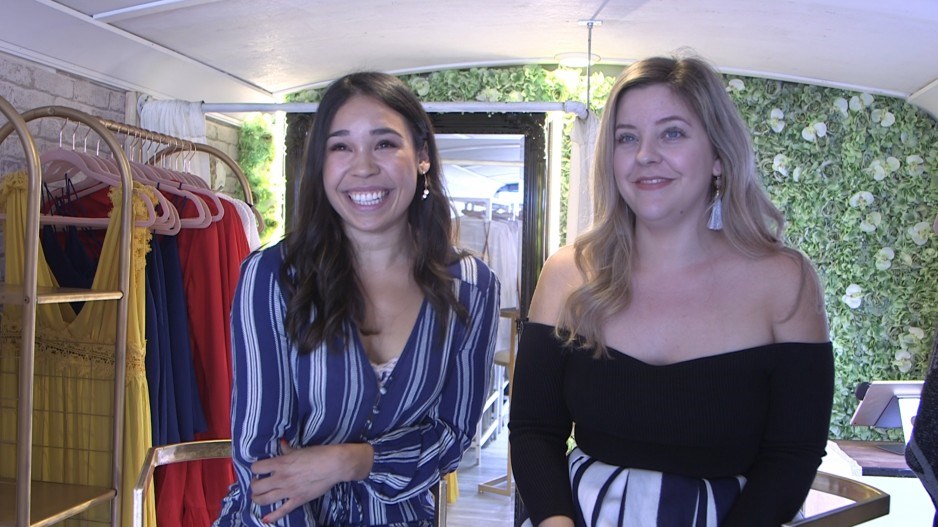Large companies have often maintained a competitive edge through economies of scale and high-dollar marketing budgets. Further down the business spectrum, independent companies with small budgets have relied on forging relationships with their customers and developing a deep understanding of their shopping habits.
But in the age of big data and artificial intelligence, corporate giants have eaten away at this advantage as they develop profiles of shoppers and customize sales and product offerings to their customer’s individual needs.
Canadian companies like Lululemon Athletica Inc. (Nasdaq:LULU) and David’s Tea (Nasdaq:DTEA) have jumped in with both feet as some of the first adopters of this technology. Both companies have engaged California-based tech firm AgilOne to gain a better understanding of their markets.
“What people are saying is they don’t want to use their brand just to push product,” said AgilOne CEO Omer Artun. “We want to understand the customer experience and how they use the product.
These large companies have years of data on everything from consumer buying preferences to sales and return statistics. With this data, companies can tailor products, services and prices to individual customers, making them more likely to buy. Companies are also trying to use this data to predict the future. By using artificial intelligence to monitor product returns, Lululemon can become aware of potential problems before they have a chance to cause trouble for the company.
Small businesses often don’t have the sophistication or staffing numbers to implement and maintain large tech and data infrastructures, Artun said, leaving them vulnerable to falling behind more tech-savvy competitors.
But it doesn’t always have to be an unequal contest, says David Ian Gray, principal and founder of the retail focused consulting firm DIG360. Gray said retailers, both small and large, are being distracted by fancy new gizmos without focusing enough on how they will create value.
“Just grabbing a tool doesn’t necessarily solve a problem,” said Gray. “At the end of the day, how are you creating more value for your customers and your business? That can be low tech.”
So how are small businesses that don’t have terabytes of customer data or enough spare cash to invest in major tech infrastructure supposed to compete? The answer, Gray said, is that a low-tech approach might just might help defend against big brand behemoths’ use of high tech.
“It’s the business model – innovating what it means to be a retailer in your market for the kind of product and customer you have,” Gray said.
A Vancouver based womenswear boutique is doing just that. Double The Love & Co. has ignored the lure of lofty retail technology fads and instead kept their way of doing business literally at street level.
{"preview_thumbnail":"/sites/default/files/styles/video_embed_wysiwyg_preview/public/video_thumbnails/Bhwa-hD0Ah0.jpg?itok=IVHRVg70","video_url":"https://youtu.be/Bhwa-hD0Ah0","settings":{"responsive":1,"width":"854","height":"480","autoplay":1},"settings_summary":["Embedded Video (Responsive, autoplaying)."]}
Instead of restricting their company to a single piece of expensive Vancouver real estate, co-founders April Robb and Zofia Rodriguez brought their business to their customers by applying the food truck concept to Vancouver’s fashion world and creating a mobile fashion boutique in a trailer.
But putting wheels on their store wasn’t the only low-tech way the team has remained viable in the competitive world of fashion. The team has also invigorated their customers’ shopping experience by turning it into a group event. Double the Love has introduced private party offerings where a group of women can get together, have a glass a wine and explore the store privately.
Both Robb and Rodriquez grew up outside of Vancouver proper and gained an appreciation for the difficulties shoppers faced accessing their favourite boutique stores in the city. Rather than using a digital solution to an analog problem, the Double the Love team bucked the online shopping trend and brought boutique fashions to customers, instead of trying to lure customers outside the Metro Vancouver area to a Robson Street shop.
The novelty of the concept makes a mobile fashion store an easy attention-getter.
“Anywhere that fashion trucks shows up, people love it,” Robb said. “It’s fun, it’s exciting, it’s new, it’s creative and people just enjoy it. It’s working.”
While some independent retailers and small businesses like Double the Love have been able to adapt, Gray said other companies, particularly mid-sized retailers, are having trouble breaking out of old ways of thinking. They become too preoccupied with new technology instead of focusing on effective ways to solve the problems facing independent retailers and small businesses, he said.
“I don’t think they have to worry about [data and artificial-intelligence technology] yet,” Gray said. “Where it becomes game changing is if most of your competitors have now adopted systems that are just stripping costs out and delivering results. Then you have a problem because you’re not going to be price competitive. But that’s not happening yet.”




